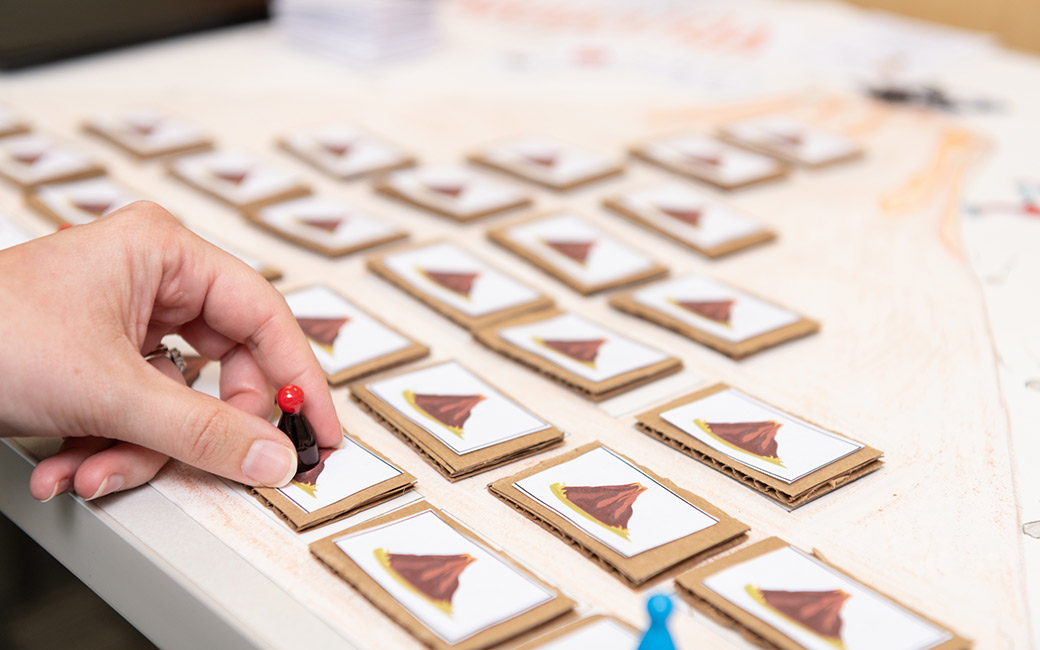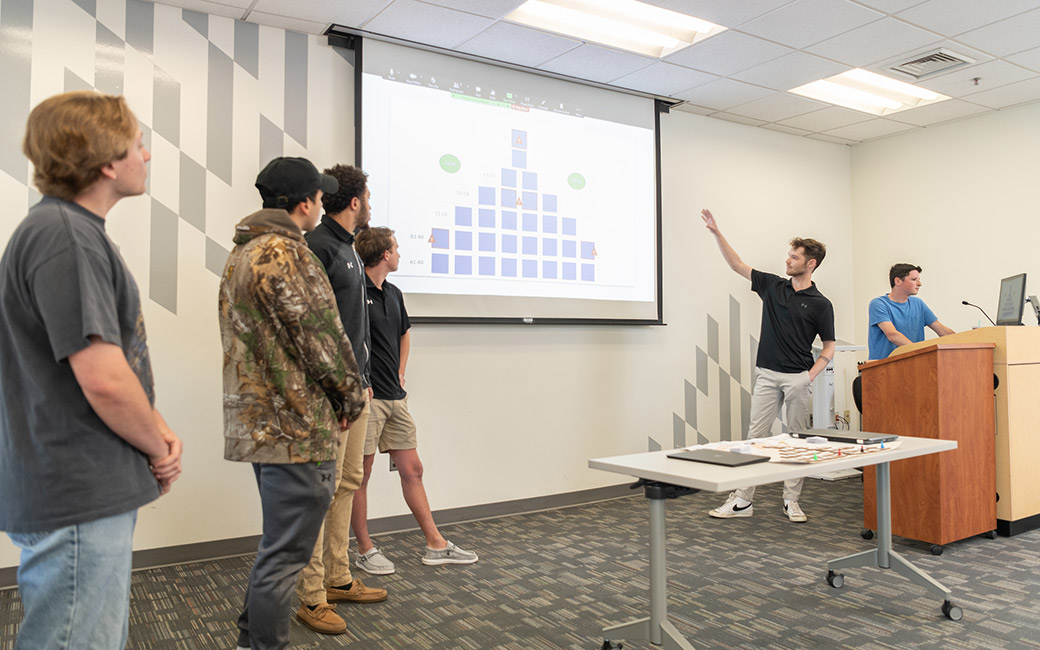Student-designed board games build leadership, management skills
Experiential learning initiative uses gamification to teach team building to Gen Z workforce
By Rebecca Kirkman on June 27, 2022

The number of Generation Z employees in the workforce—those born between the mid-1990s
and 2010—is expected to triple over the next decade, reaching 51 million by 2030.
When corporate leaders asked Mariana Lebrón, an associate professor in the Department of Management at Towson University, about ideas to motivate and engage this generation in their
workforce, she began researching gamification as a leadership training method.
The result was the Cooperative Strategy Games, a competition where students in MNGT391:
Managing and Team Building learn about leadership skills and use those skills to develop
a game designed to address real-world leadership challenges.
Lebrón designed the project with the help of Gabrielle Swab, assistant professor of
management, and industry partner Ryan Bruns, a board game executive, to represent
key characteristics of effective teams in common board game elements.
“To teach team leadership, I used cooperative strategy games—the entire team either
wins or loses by achieving the objective or not,” says Lebrón. “Then I help students
debrief the game experiences to become self-aware of the leadership skills they learned
and applied.”
These skills include team roles, creative problem-solving, influence, negation, persuasion,
power and more.
Not only do the projects teach students to work in a team, but the final products
will also help organizations and companies strengthen teams in the workplace.
“With the changing multigenerational workforce, gamification is growing as a unique
leadership strategy to engage employees more effectively in recruitment, training
and retention,” Lebrón adds.
The Cooperative Strategy Games builds on leadership concepts and curriculum in the
course, including negotiation, decision-making, creative problem-solving and project
management. With input and feedback from industry experts, students apply these concepts
to a cooperative strategy game where players must work together to win.
It’s an example of TU’s commitment to distinguished faculty mentors pushing the possibilities
of engaged learning, providing students with exceptional, student-centered educational experiences.
“The innovative outcomes and continued partnership with experts and researchers in
the gaming industry make this project valuable and showcases TU’s innovative capacity
via real-world evidence,” Lebrón says.

Since 2019, more than 200 students have created 36 games—including 26 during the pandemic,
when the class and many of the games themselves switched to a virtual format.
“One of the biggest challenges for everyone on my team was getting from the conceptualization
stage to implementation,” says Joshua Finkelstein, a business management student who
created the online game Treasures of Carias with his team in spring 2020. “I have
a background in e-sports and tech, so when COVID-19 posed a challenge, I stepped up
to transition the game from physical to virtual.”
In spring 2022, students in the course had the opportunity to work with David Merino,
a 3D printing expert and senior multimedia producer in the Faculty Academic Center of Excellence at Towson (FACET), to 3D print game pieces. Students learned how to use Tinkercad, a 3D modeling program,
to design and then print the game pieces, flexing skills in design thinking, iterative
design, rapid prototyping and mass production.
In Tiger Trouble, from designers Jason Babich, Sarah Blanton, Kathleen Klisavage,
Mackenzie Ripley and Geylani Yilmaz, five students must solve a mystery after the
Tiger statue in front of Stephens Hall goes missing. The game features 3D printed
game pieces.
In Krakatoa, a game designed by John Wills, Joshua Stein, Brady Miller, Arvin Gholamrezae,
Matthew Akuchie and Devin Callahan, four adventurers have crashed on a volcano and
must work together to collect parts of a helicopter to get to safety before the volcano
erupts.
In the Krakatoa group’s final presentation to their class and industry experts, the
student designers emphasized how the process of creating the game required the same
team-building and leadership skills they hoped to embed in the game itself.
“You did really well with gameplay and flow,” Swab told the team after their presentation.
“I was really impressed—sometimes it takes game companies years to accomplish that.”
Innovative experiential learning opportunities offered in the College of Business & Economics like the Cooperative Strategy Games prepares TU graduates to be leaders and changemakers in the workforce of the future.